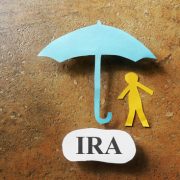Choosing the Right Self-Directed IRA
The reasons to choose a Self-Directed IRA are numerous. It’s not hard to imagine why someone might want a more independent style of investing—with a Self-Directed IRA, you’re free to invest in assets from real estate to precious metals while enjoying the protections of an IRA. However, that isn’t the whole journey. There’s still that choice of which kind of IRA to open. Should it be a Self-Directed Roth IRA? A Self-Directed Traditional IRA? Something else? What options do you have available, and which one might be best for your particular situation? In this post, we’ll dive deeper into the steps to choosing the right Self-Directed IRA for you.
Understanding the Differences Between Self-Directed IRAs
Why choose one over the other? Simply put, not all Self-Directed IRAs are made alike. Self-Directed Traditional IRAs function much like their counterparts offered in traditional brokerages, offering tax-deferred growth potential on investments. Contributions may be tax-deductible depending on factors like income.
On the other hand, Self-Directed Roth IRAs provide tax-free growth potential. While contributions are made with after-tax dollars, qualified withdrawals in retirement, including earnings, are tax-free. This means you can potentially enjoy distributions in retirement that don’t incur any additional taxes—a major boon for anyone who’s planning on having more money available in retirement.
But let’s consider another type: Self-Directed SEP IRAs. SEP IRAs are geared towards self-employed individuals and small business owners. These accounts allow for potentially higher contribution limits than Traditional or Roth IRAs, which makes them attractive for anyone with fluctuating incomes. Or, if you have a successful business, a SEP IRA can help you put more money aside for retirement.
For self-employed individuals with no employees other than a spouse, Self-Directed Solo 401(k)s can offer significant benefits, too. These accounts allow for higher contribution limits compared to Traditional or Roth IRAs. And they can also provide the option for a Roth sub-account, offering you some tax diversification.
Assessing Investment Options with Different Self-Directed IRAs
One of the primary draws of Self-Directed IRAs? The ability to invest in alternative assets beyond the traditional stock and bond markets. From real estate and private equity to precious metals and cryptocurrency, the investment options within Self-Directed IRAs are vast.
However, with increased flexibility and freedom comes more responsibility. You’ll have to do some due diligence. Before diving into alternative investments, research each opportunity, understand the associated risks, and make sure they align with your overall investment strategy and risk tolerance. You’re the one in charge here—and you have to respect that fact by being willing to put in the work. (Of course, there’s nothing preventing you from using a financial advisor as part of your Self-Directed IRA strategy).
One more note here. Unlike traditional IRAs, Self-Directed IRAs require a custodian or trustee to hold the assets and make sure you comply with IRS regulations. When choosing a custodian, consider factors such as fees, customer service reputation, and the range of investment options offered.
American IRA, for example, is a trusted custodian specializing in Self-Directed IRAs. We can help you get started.
True: Self-Directed IRAs can offer a level of flexibility and control that traditional retirement accounts may lack. Whether you’re interested in diversifying your portfolio with alternative investments or seeking retirement tax advantages, there’s something here for almost anyone.
But the key to success with Self-Directed IRAs lies in understanding your options, conducting thorough research, and working with a reputable custodian like American IRA. Interested in learning more about Self-Directed IRAs? Contact American IRA, LLC at 866-7500-IRA (472) for a free consultation. Download our free guides or visit us online at www.AmericanIRA.com.








